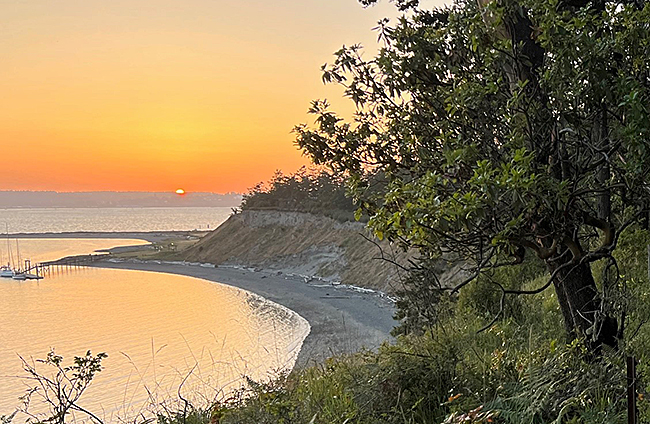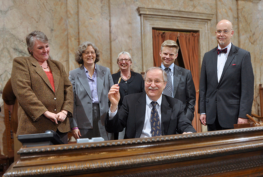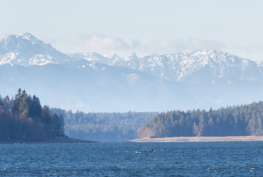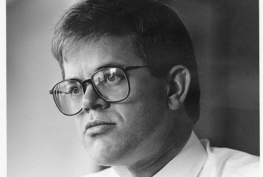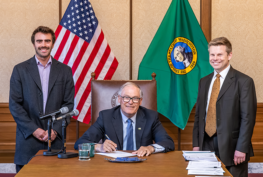Dear friends and neighbors,
From heat waves and flooding to catastrophic wildfires and drought, climate change is affecting our state’s communities, economy, and natural systems. This session, the Legislature passed several new bills and made historic investments to reduce greenhouse gas emissions and protect our water resources, forests, infrastructure, agriculture, and human health.
Climate action
In 2021, Washington became the second state to enact a limit on overall carbon emissions. It is exciting to see our state’s groundbreaking Climate Commitment Act take shape. The plan creates a statewide cap-and-invest program to cut carbon pollution and requires emitters to pay for emissions allowances equal to their covered greenhouse gas emissions. Over the next two years, roughly $2 billion from these allowances will help the state address climate change in several ways.
- $430 million will reduce utility costs, facilitate the transition from fossil fuel to clean energy consumption, and improve air quality.
- $1 billion will reduce greenhouse gas emissions by electrifying transportation and promoting active transportation like walking and biking.
- $340 million will support a wide range of efforts to restore habitats, protect ecosystems, and strengthen working lands.
- $200 million will promote community health and resiliency, including efforts to monitor and mitigate air pollution in overburdened communities.
Several other bills will strengthen the state’s environmental policies while protecting people and the environment.
- HB 1216 creates a framework for siting new clean energy facilities across the state.
- HB 1138 provides new resources for addressing droughts.
- SB 5104 improves the state’s ability to protect marine shoreline habitats in Puget Sound, Hood Canal, and the San Juan Islands.
- HB 1753 expedites the removal of derelict vessels to protect public safety and shoreline ecosystems.
- HB 1047 restricts the sale of cosmetic products containing nine hazardous chemicals, including PFAS.
- HB 1085 prohibits short-term lodging establishments from using small, plastic containers for toiletries. It also prohibits the use of floats made of polystyrene and requires water bottle filling stations be included with drinking fountains in new buildings.
- SB 5144 creates a statewide battery stewardship program to make it easier for people to responsibly dispose of old batteries.
- HB 1329 prevents utility companies and landlords from shutting off electricity or water due to non-payment during extreme heat events.
Recreation and public land
Like many of you, I cherish our state’s outstanding public parks and outdoor recreation opportunities. I spent Memorial Day weekend at Fort Flagler State Park (pictured above) with my sons on a scout camping and kayaking trip. People who love and care about access to recreation on our public lands also have cause to celebrate the operating and capital budget investments we made this year. Here are a few highlights:
- A record $120 million investment in the Washington Wildlife and Recreation Program, our state’s largest funding source for outdoor community projects. This program has previously funded projects such as the Arboretum Waterfront Trail Improvements, which are slated for completion in the fall of this year.
- Modernizing our state’s Trust Land Transfer program, plus funding for six new projects across the state, including 99 acres on West Tiger Mountain.
- More than $10 million for youth athletic facilities.
- Funding for the No Child Left Inside
I’m proud of the policy and investments that the legislature made this year. They reflect our state’s strong commitment to responsible environmental stewardship. Thanks for taking the time to read my newsletter. I will continue to send updates on key legislation passed during this year’s legislative session. If you missed my previous updates on gun safety, reproductive freedom, public education, housing, or LGBTQ+ rights, they are available on my website. Please reach out with any questions at Jamie.Pedersen@leg.wa.gov.
Best,
Jamie
